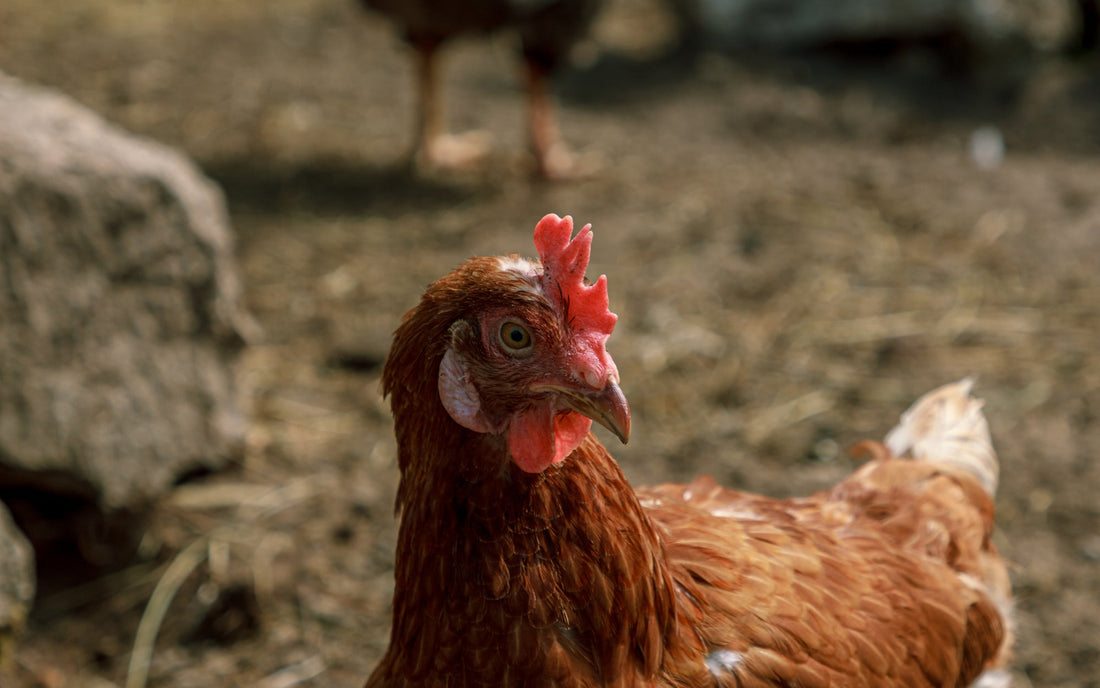As the trend of raising backyard chickens continues to flourish, there's a henhouse-full of misconceptions and myths swirling around these feathered friends. From their flying abilities to their egg-laying habits, there's a lot to uncover in the world of Gallus gallus domesticus. So, whether you're a seasoned chicken keeper, a curious urban farmer, or just an enthusiast wanting to separate the chicken fact from fiction, this post is your guide to debunking the most common chicken myths.
Myth 1: Chickens Can't Fly
Contrary to popular belief, chickens can fly – just not very far or for a long time. Many people imagine chickens as ground-bound birds, clucking about the yard, incapable of taking flight. However, while they won't take off like a hawk or an eagle, chickens can indeed flutter upwards, over fences, and across yards, particularly when spooked or chasing after tasty insects.
The flight of chickens is usually limited because of their body size and wing structure. Moreover, specific breeds like Bantams can fly better than larger breeds, like Rhode Island Reds or Orpingtons. So, while you won't see your chickens soaring through the sky, don't be surprised if you find them roosting up in the trees!
Myth 2: All Chickens Lay Eggs Every Day
This is another persistent myth that needs to be cracked open. While it's true that a healthy, happy hen in her prime can lay an egg almost every day, not all chickens maintain such a consistent egg-laying schedule.
Various factors influence the frequency of egg laying, including breed, age, diet, stress, daylight hours, and overall health. Some breeds, like White Leghorns, are prolific layers, while others, like Silkies, lay less frequently. As chickens age, their egg production also decreases. Additionally, chickens require ample daylight to lay eggs consistently; shorter winter days often lead to decreased egg production.
So, remember, if your chicken isn't laying an egg every day, it's not necessarily a sign of trouble – it might be completely normal!
Myth 3: Roosters Are Needed for Hens to Lay Eggs
Roosters play a critical role in the chicken world, especially when it comes to fertilizing eggs. But here's a fun fact – hens don't need roosters to lay eggs! Hens will lay eggs without a rooster present. However, those eggs will be unfertilized, meaning they won't develop into chicks.
In contrast, if a rooster is part of your flock, he will mate with the hens, and the eggs they lay will potentially be fertilized. But whether you're aiming for a breakfast scramble or raising the next generation of your flock, your hens will keep laying regardless of a rooster's presence.
Myth 4: Chickens Are Unintelligent Birds
Let's peck at this myth a bit. Chickens are often painted as bird-brained creatures, but this is far from the truth. They have remarkable cognitive abilities and can remember over 100 different faces of people or animals. They display complex social behaviors, have a sense of time, and can even demonstrate self-control.
Moreover, chickens communicate using over 30 distinct vocalizations to warn their flock about predators, call their chicks, or express their mood. So, next time you observe your flock, remember – there's a lot more going on in those feathered heads than you might think!
Myth 5: Chickens Are Vegetarian Birds
Chickens are not strict vegetarians. They are omnivores, meaning they eat both plants and meat. While they love pecking at grains, vegetables, and fruits, they also enjoy a protein-packed snack of insects, worms, and even small mice or frogs. A diet including both plants and protein is crucial for their health and egg production. So, if you see your chicken chasing a bug around the yard, don't be alarmed – it's entirely normal!
In conclusion, chickens are a lot more complex and fascinating than they often get credit for. As we continue to debunk myths about chickens, we can appreciate these animals for what they are – unique, intelligent creatures that are an asset to any backyard or farm. Whether you're raising chickens for their eggs, for meat, or as pets, understanding these truths will surely enrich your chicken-keeping experience.

